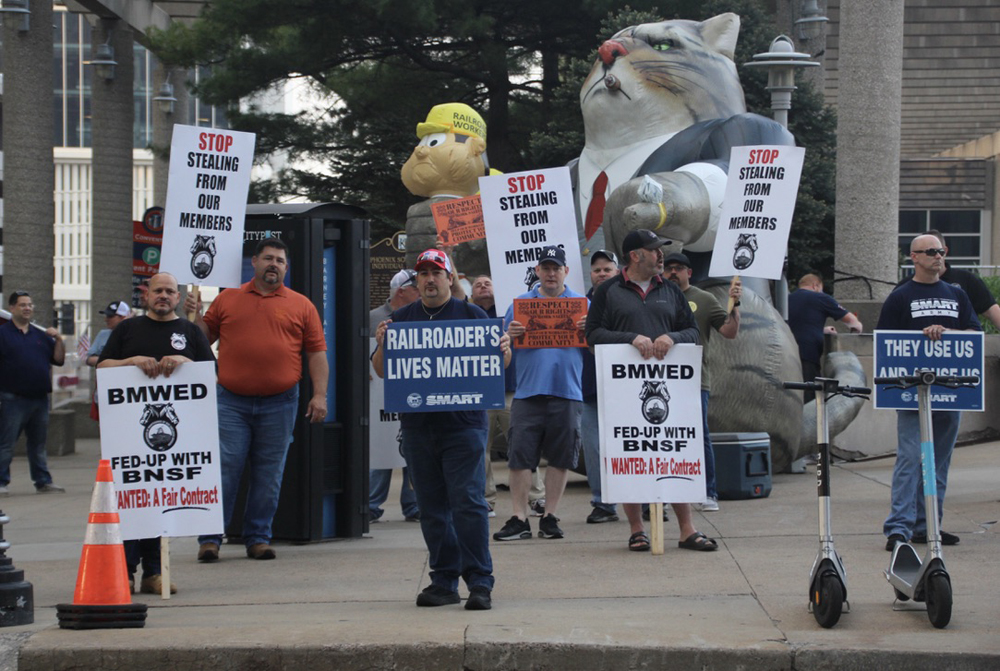
The conclusion of our countdown of the Trains News Wire Top 10 stories of 2022, as determined by a vote of Trains editors, columnists, and masthead correspondents.
Railroads were catapulted into national headlines in the fall as labor negotiations came down to the wire, raising the prospect of the first strike or lockout in three decades.
After nearly three years of fruitless negotiations between a dozen labor unions and the railroads, the Biden Administration in July appointed a Presidential Emergency Board to make contract recommendations.
The PEB in August recommended a 24% wage increase, along with $5,000 in service recognition bonus payments, over the five-year life of the contract retroactive to Jan. 1, 2020. That was below the 28% increase the unions sought, but above the railroads’ 16% proposed wage hike. The board also recommended that railroads and unions sort out working conditions issues, including scheduling and sick time, on the local level.
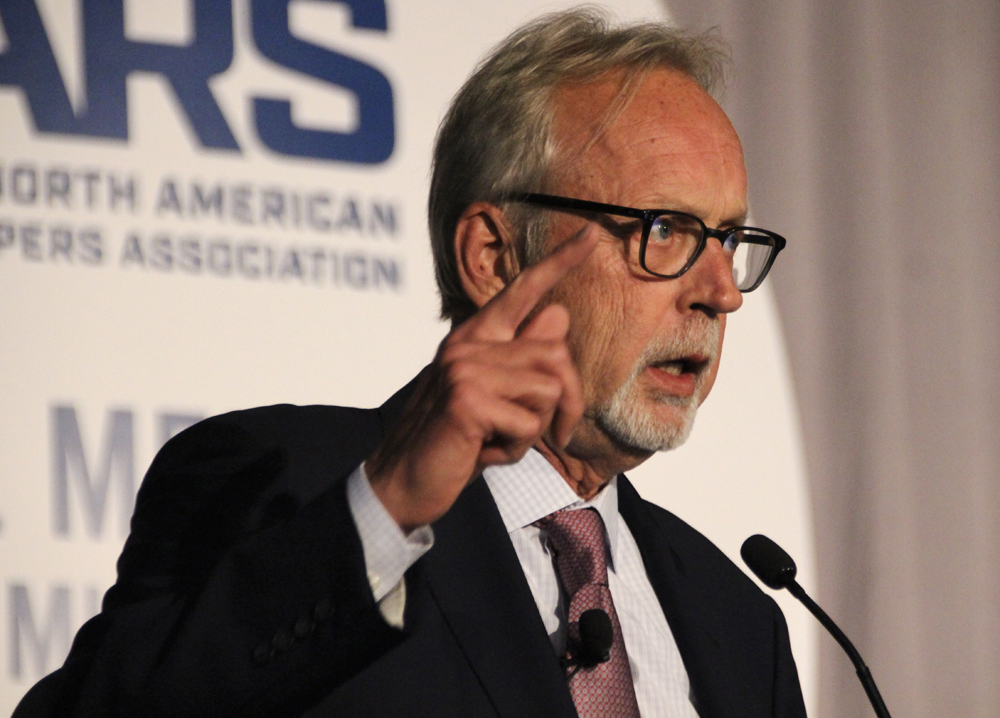
Hours before a Sept. 16 strike deadline, unions and the National Carriers’ Conference Committee that represents the U.S. Class I railroads reached a deal with the assistance of the White House, including Labor Secretary Marty Walsh.
But four unions ultimately rejected the tentative agreements with the railroads, setting up the prospect of a strike as early as Dec. 9.
To prevent a strike that would have crippled the rail network, added more kinks to already snarled supply chains, and hurt broad sectors of the economy, Congress passed legislation that imposed the PEB’s contract recommendations. A separate measure that would have added paid sick time failed to pass.
President Joe Biden on Dec. 2 signed legislation to prevent a strike. “Our nation’s rail system is literally the backbone of our supply chain, as you all well know. And so much of what we rely on is delivered on our rail, from clean water to food and gas and … every other good. A rail shutdown would have devastated our economy,” Biden said.
“We ensured workers are going to get a historic 24% wage increase over the next five years, improved working conditions, and peace of mind around their healthcare,” Biden said. “And, look, I know this bill doesn’t have paid sick leave that these rail workers and, frankly, every worker in America deserves, but that fight isn’t over.”
The legislation ended the prospect of a strike but it did not solve worsening labor-management relations at the Class I railroads in the U.S. (Canadian Pacific is not part of national negotiations in the U.S.)
Greg Regan and Shari Semelsberger, president and secretary-treasurer of the Transportation Trades Department of the AFL-CIO, said they were disappointed with the way matters were resolved.
“We are disappointed anytime the vote to approve a contract is taken out of the workers’ hands. Even so, we cannot lose sight of the significant wins that are delivered to rail workers through this contract: a 24% pay raise with back pay, which is the biggest wage increase in 45 years; a $5,000 bonus for every worker; an increase in travel disbursements for maintenance of way workers; no increase in health insurance copays or deductibles; no changes to two-person crew staffing; and more,” they said in a statement.
“Let’s be clear what happened here: ultimately, freight railroads refused to bargain in good faith and did not listen to their workers. The rail industry’s unchecked corporate greed and bad faith bargaining efforts forced this contract fight to run the full course of the Railway Labor Act, landing at the doorstep of the Biden Administration and the U.S. Congress,” they said.
Additional News Wire coverage:
CSX’s Foote calls for fundamental change in relationship with union workers, May 10, 2022
Labor leaders skeptical of CEO talk of improving railroads’ relationship with rank and file, May 16, 2022
Labor, railroads far apart on contract proposals presented to Presidential Emergency Board, July 25, 2022
Presidential Emergency Board issues rail contract recommendations meant to avert strike, Aug. 16, 2022
Freight railroad strike averted thanks to tentative contract agreements, Sept. 15, 2022
Rail strike averted for now, but the industry’s not out of the woods yet: Analysis, Sept. 15, 2022
Biden calls on Congress to impose rail labor settlement, Nov. 28, 2022
Senate approves legislation to impose rail labor settlement, Dec. 1, 202
Biden signs bill preventing nationwide railroad strike, Dec. 2, 2022






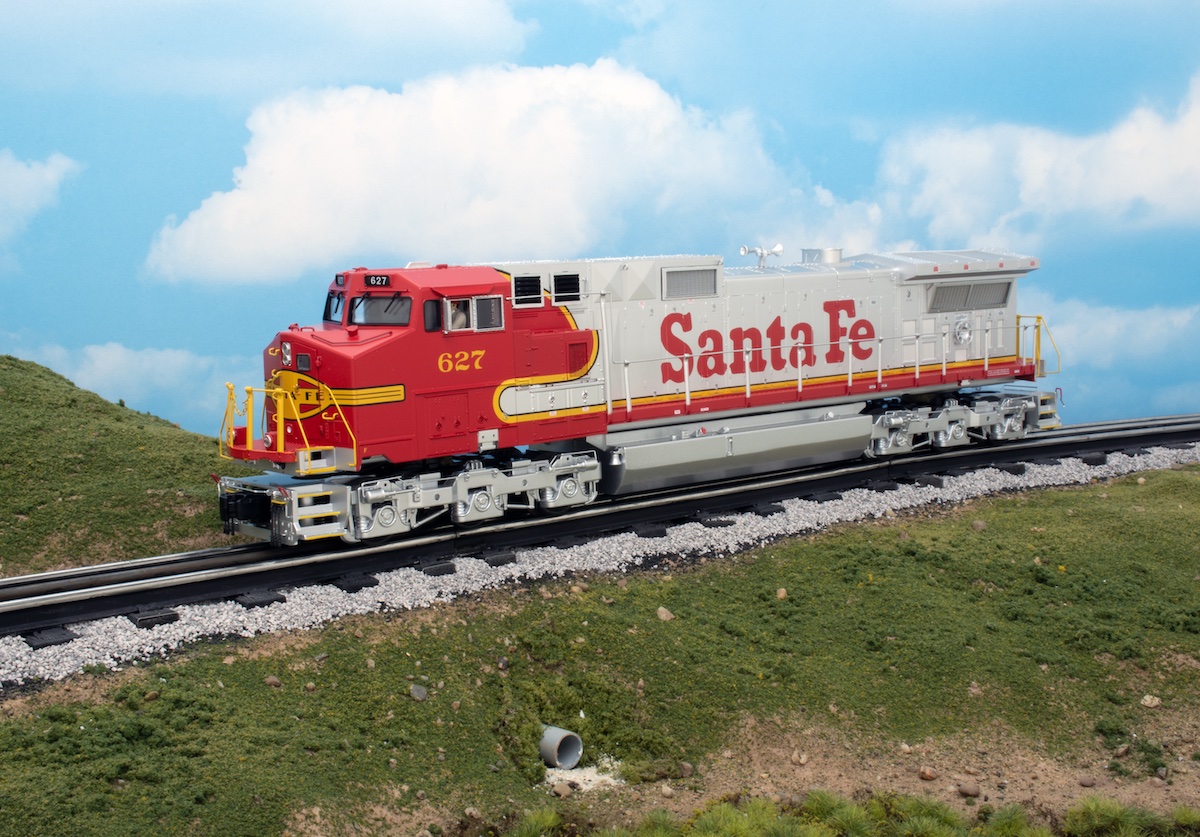
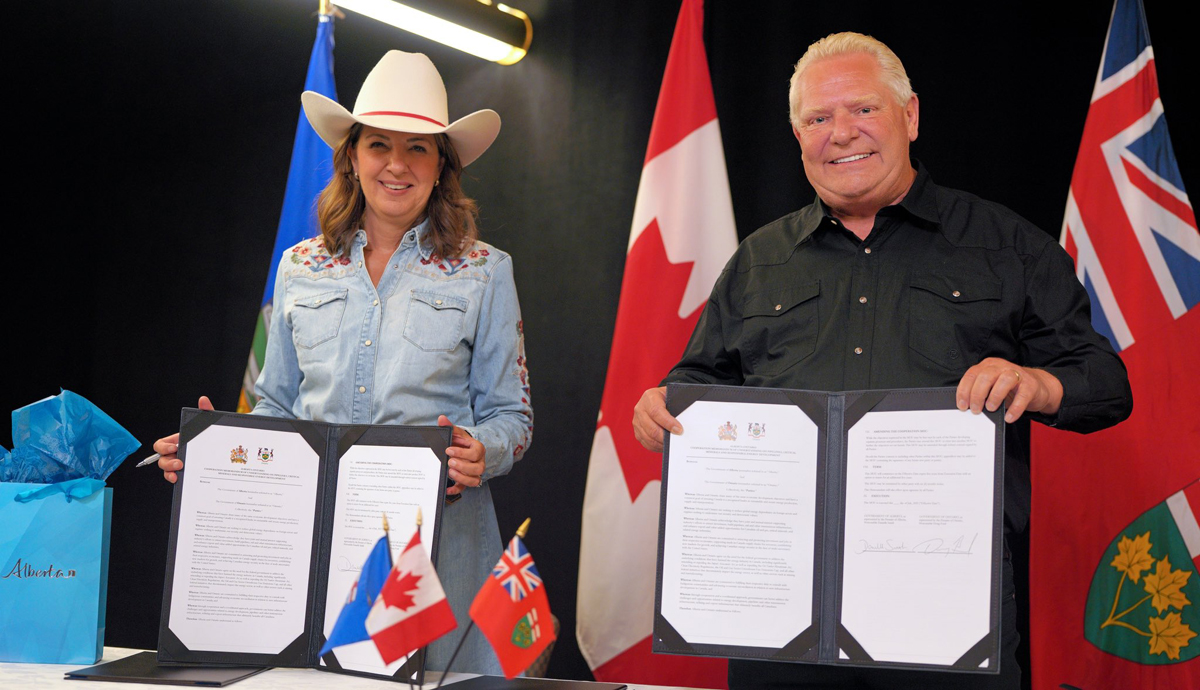
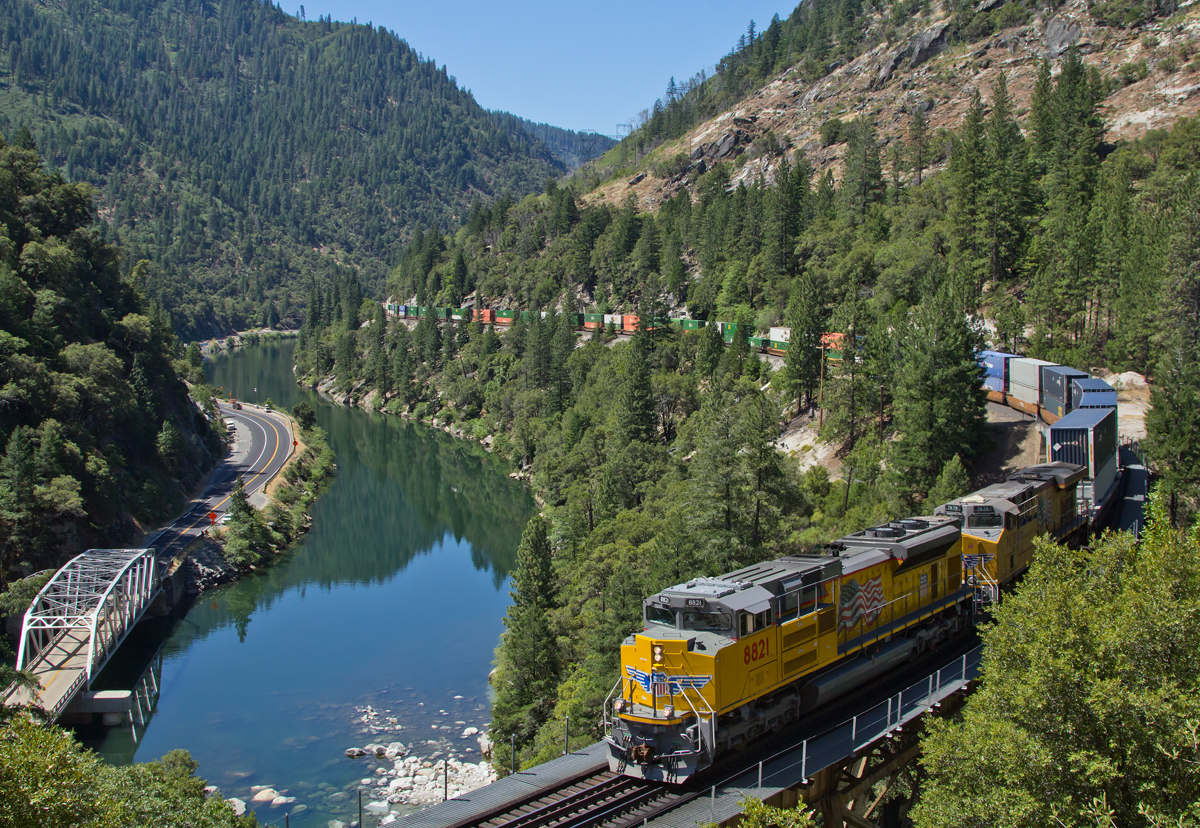
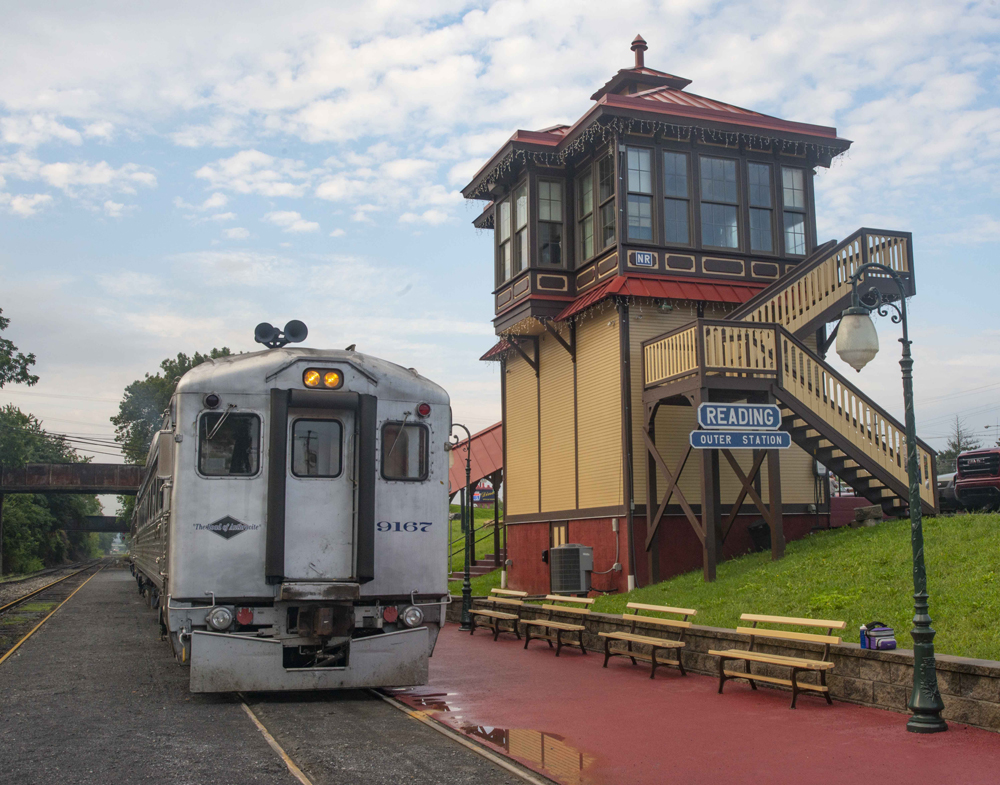




It wonders me why the Brotherhoods and their negotiators were unaware of the concerns their members had with both sick pay and the fear of being fired for seeking medical help for an acute problem without giving a month’s notice.
This is intertwined with stories 2 and 3.
The RR’s pay well, but the lack of a family life and the inability to plan anything including health care on a timely basis may be discouraging potential employees from applying.
It will be interesting to see how many walk when the retro pay (to 1-1-2020) comes in and a $5000 bonus! $5000 will buy a 2008 Ford Explorer 4×4 with 150,000+ miles.
As a part-time copy editor in my day job, the passive construction of “A separate measure that would have added paid sick time failed to pass” really bothers me. “Senate Republicans blocked a separate measure that would have added paid sick time” would have been better writing, and more accurate. It’s the responsibility of the news media – even Trains – to be clear about what’s going on when the two major parties are (1) divided on almost every important issue and (2) prioritize party loyalty over nearly any other consideration.